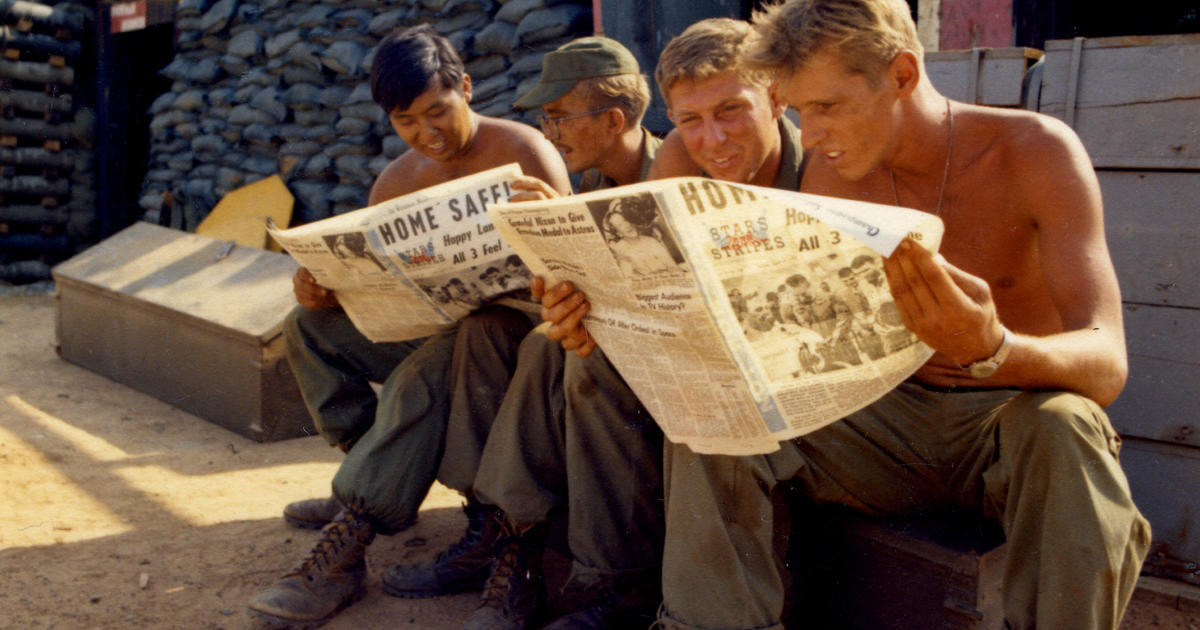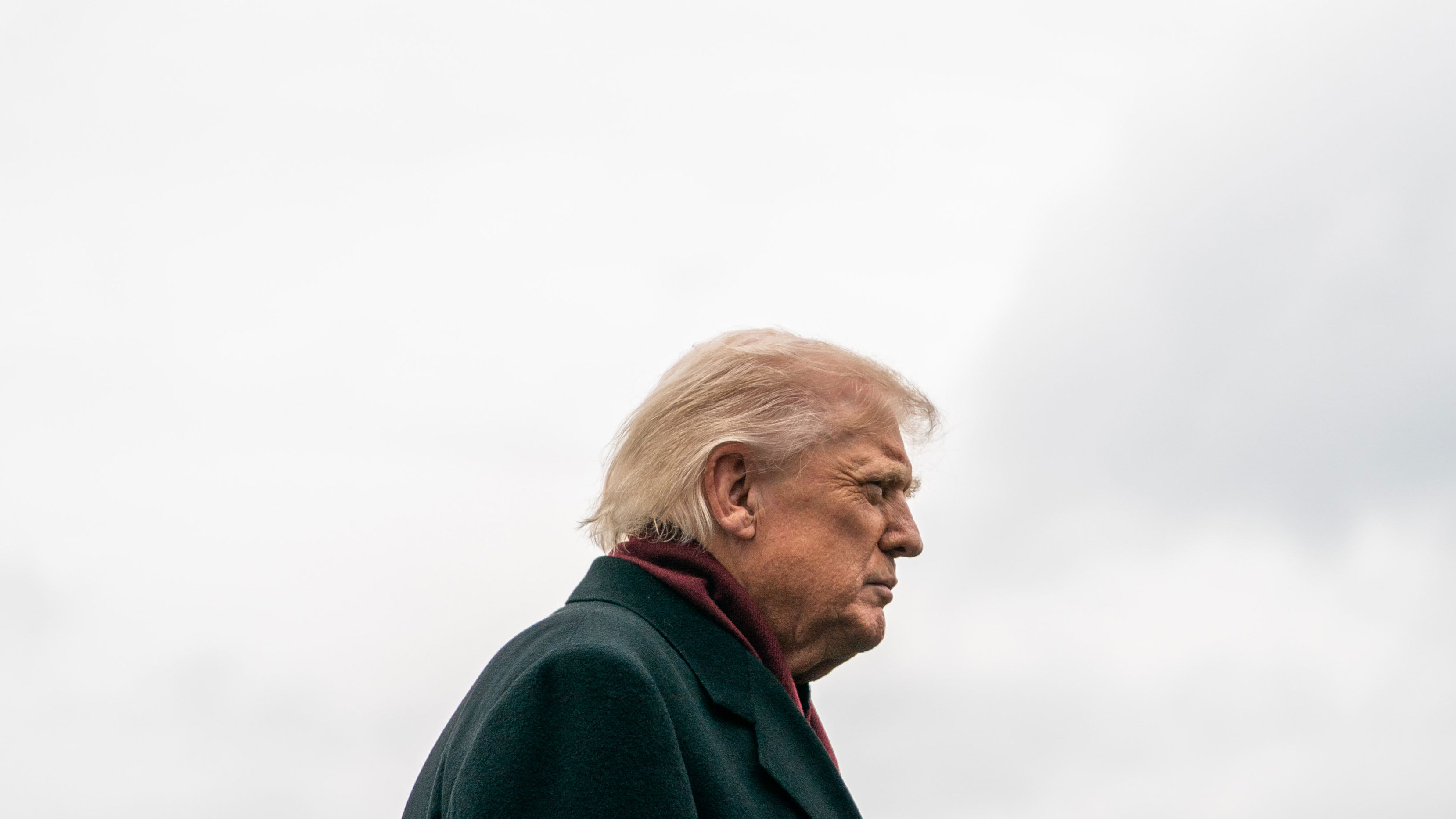7 key moments from Gordon Sondland's hearing in the impeachment inquiry
Washington — In the fourth day of public impeachment hearings, Gordon Sondland, the U.S. ambassador to the European Union, told lawmakers that he and others pursued a "quid pro quo" arrangement with Ukraine at the "express direction" of President Trump.
"Was there a 'quid pro quo?' As I testified previously, with regard to the requested White House call and White House meeting, the answer is yes," he said in his opening statement, contradicting Tuesday's witnesses.
He said Mr. Trump's desire for Ukraine to open investigations into one of his Democratic opponents in the presidential race in exchange for a White House meeting with Ukrainian President Volodymyr Zelensky was "no secret," and that "everyone was in the loop," including Secretary of State Mike Pompeo.
While Sondland and Rudy Giuliani, Mr. Trump's personal attorney, conveyed these requests for investigations to Ukrainian officials, he said, "We all understood that these prerequisites for the White House call and White House meeting reflected President Trump's desires and requirements."
In response to Sondland's opening statement, House Intelligence Chairman Adam Schiff called on the State Department to turn over records related to the investigation, and issued a warning to Pompeo and the president.
"We can see why Secretary Pompeo and President Trump have made such a concerted and across-the-board effort to obstruct this investigation and this impeachment inquiry," Schiff said in his opening statement. "And I will just say this — they do so at their own peril."
Meanwhile, Devin Nunes, the committee's top Republican, condemned the proceedings as a "circus" and referred to the testimony as "story time."
Here are some of the highlights of the hearing:
- Sondland said Trump ordered diplomats to work with Giuliani on Ukraine
Sondland said he and other U.S. officials did not want to work with Giuliani on issues related to Ukraine, but felt they had no other choice after the president told them to "talk to Rudy."
"We all understood that if we refused to work with Mr. Giuliani, we would lose an important opportunity to cement relations between the United States and Ukraine," Sondland said. "So we followed the president's orders."
Giuliani had publicly called for Ukraine to investigate supposed Ukrainian interference in the 2016 U.S. election and Ukrainian energy company Burisma, which had hired Hunter Biden while his father was vice president.
Sondland expanded on his calculation in dealing with Giuliani: "Based on the president's direction, we were faced with a choice: We could abandon the efforts to schedule the White House phone call and White House visit between Presidents Trump and Zelensky, which was unquestionably in our foreign policy interest, or we could do as President Trump had directed and 'talk with Rudy.' We chose the latter course — not because we liked it, but because it was the only constructive path open to us."
2. Sondland confirmed and denied parts of Holmes' testimony
Sondland confirmed that he spoke with Mr. Trump on the phone from a restaurant the day after the now-infamous July 25 call with Ukraine's president.
David Holmes, a State Department official, testified behind closed doors last week that he and several other aides overheard Mr. Trump ask Sondland on that call about whether Ukraine's president would pursue investigations.
"I have no reason to doubt that this conversation included the subject of investigations," Sondland said Wednesday. "I would have been more surprised if President Trump had not mentioned investigations, particularly given what we were hearing from Mr. Giuliani about the president's concerns."
But, Sondland denied Holmes' claim that Sondland told him shortly after the call that "the president did not 'give a s**t about Ukraine.'" According to Holmes, Sondland said that only "big stuff matters" to the president, "like this Biden investigation that Giuliani is pushing."
Sondland, however, told the committee he has "no recollection of discussing Vice President Biden or his son on that call or after the call ended."
Sondland also said he learned only later that requests to investigate Burisma were synonymous with investigating the Bidens.
"Today I know exactly what it means. I didn't know at the time," Sondland said.
His testimony also undermined Republicans' argument that Mr. Trump wanted Zelensky to pursue investigations because he was legitimately concerned about corruption in Ukraine.
The deal was that "[Zelensky] had to announce the investigations. He didn't actually have to do them," said Sondland.
3. Sondland said the State Department was "fully supportive"
Sondland said he and his colleagues "kept State Department leadership and others apprised of what we were doing" for months, and that the "State Department was fully supportive of our engagement in Ukraine affairs."
Sondland quoted a September 3 email from Pompeo, in which the secretary of state said Sondland was "doing great work" and told him to "keep banging away."
Later in the day, however, a State Department spokesperson said "Gordon Sondland never told Secretary Pompeo that he believed the president was linking aid to investigations of political opponents. Any suggestion to the contrary is flat out false."
4. Sondland said he mentioned his "concerns" about the military aid to Pence
Sondland recalled a meeting in Warsaw between Zelensky and Vice President Mike Pence in September, when the Ukrainian president raised concerns about the delay in nearly $400 million in military aid.
"I mentioned to Vice President Pence before the meetings with the Ukrainians that I had concerns that the delay in aid had become tied to the issue of investigations," Sondland said.
When Zelensky raised the issue with Pence directly, Sondland said the vice president told him he "would speak to President Trump about it."
But as the hearing dragged on, Pence's office refuted Sondland.
"The vice president never had a conversation with Gordon Sondland about investigating the Bidens, Burisma, or the conditional release of financial aid to Ukraine based upon potential investigations," said Marc Short, Pence's chief of staff, in a statement. "This alleged discussion recalled by Ambassador Sondland never happened."
5. Sondland became "absolutely convinced" delay in aid was linked to investigations
When asked if the "only logical conclusion" is that the release of military aid was part of the quid pro quo, Sondland replied, "Yup."
He said he was "absolutely convinced" the delay in U.S. aid to Ukraine was tied to investigations even though Mr. Trump never directly told him that.
6. GOP congressman slammed Sondland's testimony as "nothing"
Republican Congressman Mike Turner slammed Sondland for his "presumption" that the release of military aid to Ukraine was conditioned on announcing investigations.
"You really have no testimony today that ties President Trump to a scheme to withhold aid from Ukraine in exchange for these investigations," Turner said.
Sondland replied, "Other than my own presumption."
"Which is nothing!" Turner said.
"No one on this planet told you President Trump was tying aid to investigations. Yes or no?" Turner continued.
"Yes," Sondland replied.
In response, Schiff said Mr. Trump would have to say "Ambassador Sondland, I am bribing the Ukrainian president" to convince Republicans he did something wrong.
7. Sondland acknowledges Biden probe would benefit Trump
Under questioning from Democratic Congressman Sean Patrick Maloney, Sondland reluctantly acknowledged he "assumed President Trump would" benefit from an investigation into the Bidens.
"Who would benefit from an investigation of the president's political opponents?" Maloney asked.
"Presumably the person who asked for the investigation," Sondland replied.
Maloney then asked who would benefit from an investigation of the Bidens.
Sondland responded: "I assume President Trump would."
"There we have it, see! Didn't hurt a bit, did it?" Maloney replied, to laughter and applause.





